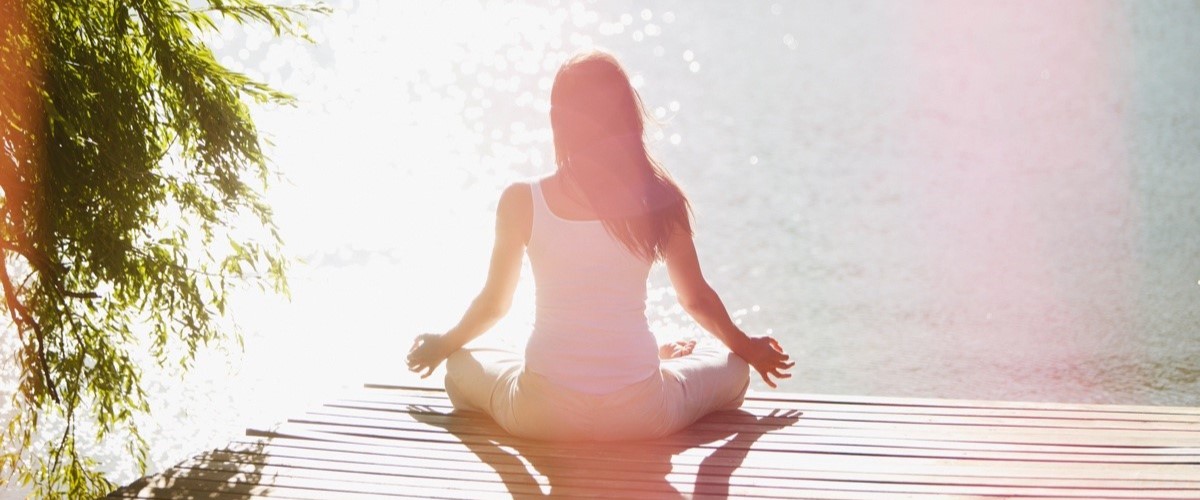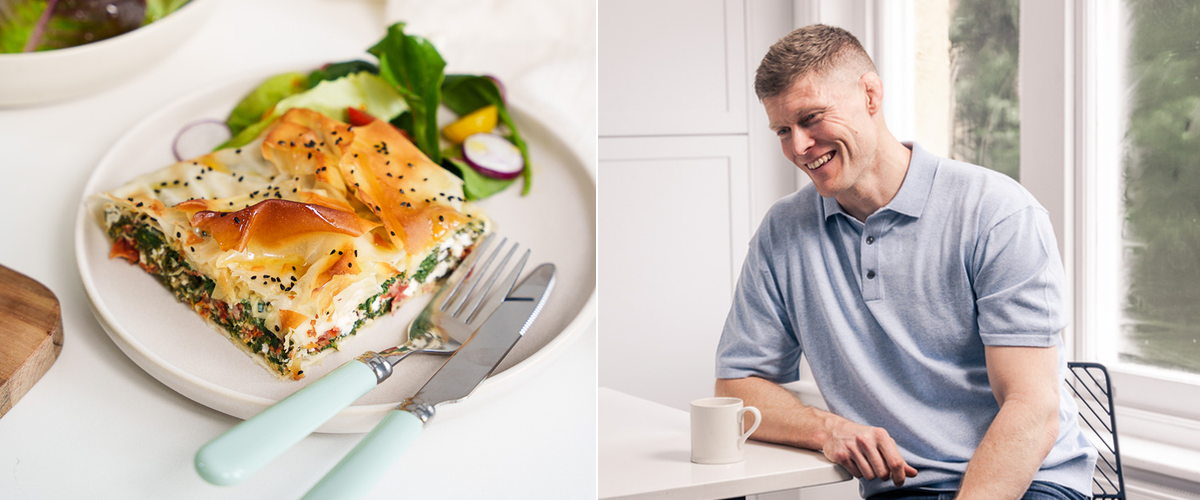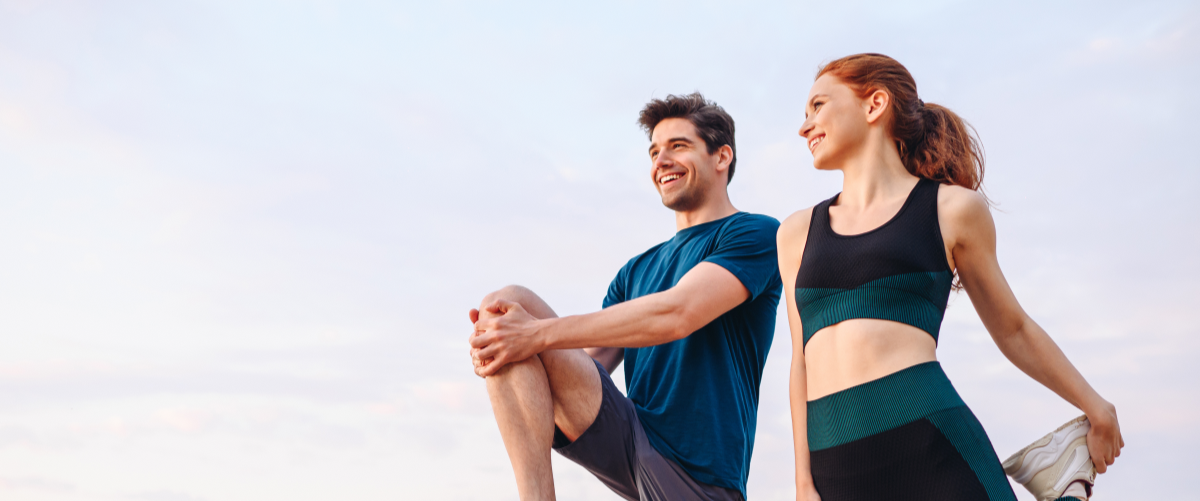How to stay healthy on your summer holiday
Embarking on a far-flung holiday can seem daunting. Here's how to stay healthy on your summer holiday

Figures show that spending on hotels, resorts and holiday accommodation rose 16.6% in April 2022, compared with the same month in 2019, as we all look forward to some well-deserved time off.
But the pandemic means that, for lots of us, there is an understandable element of anxiety about travelling again for the first time. The potential for restrictions changes, lowered immunity and virus transmission can make, what should be an exciting prospect, a real headache.
And with the pandemic triggering a 25% increase in the prevalence of anxiety and depression worldwide, it’s perhaps not surprising that travel worries has crept in alongside.
But this should not be holding you back.
Worker burnout is at an all-time high and it’s important you take some quality, relaxing time out. After an extended break from travel, many of us could also do with a reminder of how to stay well (and how that may be a bit different now), particularly as research suggests that up to 79% of people get ill during travel or on arrival.
So, here’s our expert guide to being stress-free and healthy on your next get away.
Plan for every eventuality
First, check if you need any jabs for your destination. “Travel vaccinations should be planned a minimum of eight weeks prior to travel, as some may need several doses spread out over a few weeks or months,” said Dr Verity Biggs from H3 Health.
“The main travel vaccines available on the NHS include polio, typhoid, hepatitis A and cholera. It is essential to plan in advance, as although it may feel urgent to get them done if you have planned a trip last minute, it isn’t classed as urgent for the NHS,” warns Biggs, who also recommends making sure you are up to date with any health checks and making sure you have your usual supplies of medication for travel.
Head to NHS site FitForTravel to find out what you need. Travel vaccines are also available via some health insurance plans, such as Vitality’s Worldwide Travel Cover, which allows people to claim up to £100 each year on a range of vaccinations, including anti-malarial, typhoid and cholera.
Wash your hands in airport hotspots
Due to a reduction of holidays and travel, concerns have risen that this could have an impact on our immune systems. So, does this make us more vulnerable to illness while on holiday?
“When our immune system doesn’t ‘see’ viruses for a prolonged time, our immunity tends to wane, which means we may get a more severe form the next time we are exposed,” said Immunologist Dr Jenna Macciochi, author of Your Blueprint for Strong Immunity.
“But two years of restrictions is very short in terms of immune function, which is built up over your entire lifetime,” she explained. We still, however, need to maintain a certain level of vigilance when it comes to hygiene, Biggs warns.
“Being in close proximity to others and touching different surfaces will spread germs,” she said. “We still need to remember the advice to wash our hands regularly, use hand sanitiser and cover our faces when coughing and sneezing.”
Pandemic-proof yourself
So, the good news is your immunity shouldn’t be affected. But there are still extra precautions that should be taken, particularly if you’ve had Covid-19. The risk of deep vein thrombosis can be elevated for up to three months post-infection.
So, if you’re travelling by plane, try to move around during the flight as much as possible, don’t cross your legs, stay hydrated and consider compression socks. It might also be a good idea to take a small dose of aspirin – this helps thin your blood, making clots less likely.
If you’re still concerned about Covid-19 when you get to your destination, do whatever makes you feel comfortable: carry hand sanitiser, wear a mask (particularly in enclosed indoor spaces, such as public transport), and do your research, many businesses will publish their Covid-19 policies on their websites, so you can have peace of mind you are going somewhere you feel safe.
Pack a first-aid kit
As well as a good book and a deck of cards, bring along some health must-haves.
Biggs recommends buying a pre-prepared first aid kit, containing the usual suspects such as: gloves, plasters, bandages, antiseptic wipes and antiseptic creams, but also bringing rehydration sachets, over-the-counter painkillers and insect bite cream.
“Also pack probiotics, known to be helpful for traveller’s tummy. Look for Saccharomyces boulardii, which is actually a type of yeast known to be beneficial for the gut, and the ‘good’ bacteria Lactobacillus rhamnosus GG,” Macciochi added.
Avoid tummy troubles
So, you’ve got your probiotics, but do also remember to follow all the usual rules when it comes to avoiding holiday tummy troubles:
- Go for fruit that needs to be peeled
- Avoid salads that could have been washed in contaminated water
- Be cautious around shellfish,
- Check that you can drink the local water, and if you can’t, don’t have ice in your drinks and use bottled water to brush your teeth.
- Be clever at buffets – food that has been sitting around poses a greater risk of food poisoning, so choose dishes that are piping hot.
If you do fall sick, Biggs recommends seeking medical attention if your symptoms are severe.
“Symptoms should normally only last three to five days and get better on their own without needing treatment,” she said.
And remember, emergency treatment costs and repatriation expenses are covered under Worldwide Travel Cover, up to £10m.
Know when to worry about a bite
We may be used to the critters we face at home, but different creatures may bite us abroad.
“Insect bites are common in many parts of the world, but monitoring the bites for changes is recommended,” said Biggs.
“It is common for a bite to become red and itchy, but if the redness is spreading, or becoming more painful and swollen, seek medical advice. Use creams formulated for bites, try to avoid scratching them and keeping them cool can all help.”
To avoid bites, the NHS recommends applying insect repellent that contains 50% DEET, staying away from strongly perfumed personal care products that can attract bugs, being careful around flowering plants and stagnant water, and keeping food and drink covered outside.
Stay safe in the sun
It’s always important to protect ourselves from the effects of the sun. And if you haven’t been abroad anywhere hot for a couple of years, you may need to redouble your safety efforts, both from a skin perspective and to avoid heat stroke or dehydration.
“Keeping hydrated and avoiding the midday sun is key to avoiding too much sun and heat,” explained Biggs.
“Stay out of the direct sun from noon to 3pm and wear a hat. Sun cream should be a minimum of SPF30 and needs to be reapplied regularly throughout the day, remembering areas of the body which can be easily forgotten – your ears and feet, for example.”
Be open to change
Above all, be kind to yourself. You might not want to do the things you used to on holiday – visiting crowded tourist attractions, for example, and that’s fine. Instead, look to connect with nature, include some self-care (we’re not saying no to a spa day), or fit in some activities that get your body moving – all will help you feel your best.
Bon voyage!
As a Vitality member, you could get partner benefits and rewards with a range of big brands. Available with qualifying health insurance, life insurance and investment plans. Log into the Member Zone for the details.
Recent articles

More than a parkrun: ‘It’s all about the community’
parkrun has given Mark more than he could have ever imagined – not least a budding community that he can rely on through the good and the bad

Eat your greens! 3 spinach recipes to enjoy this spring
Spinach is in season and our resident nutritionist, James Hudson, has rustled up 3 family-favourite recipes for you to enjoy this spring

How to become the perfect workout buddy
With group running found to have the same impact on mental health as a course of anti-depressants, there’s never been a better time to enjoy the benefits of social exercise
